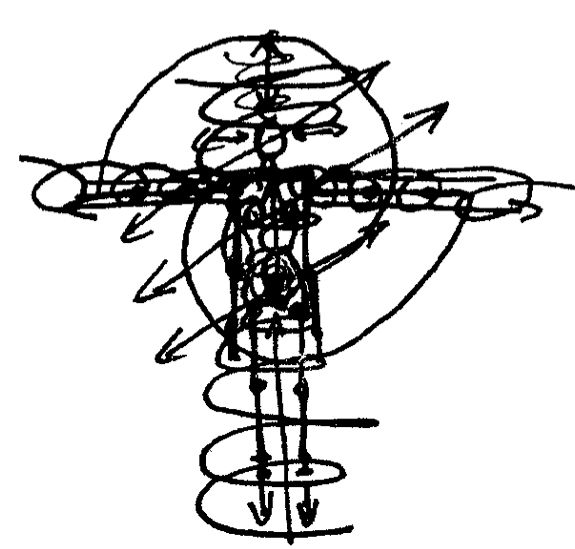BEGGING: A hunger strike / performance practice that I began in 2012, to bring my full attention on the problems intrinsic to performance and economics. This began as a personal/professional necessity and ultimately opened up a questioning of our field of performance in relation to society at large.
The first action of this series was called: BEGGING #1: Detoxification of Preconceptions About Money
It happened from September 8, 2012 – September 14, 2012 - 12:00 pm - 8 pm
It was Free to the public at Dance New Amsterdam
With this practice I am bridging (1) funding in performance, (2) begging in both the monastic tradition and streetwise sense of panhandling (3) and the crisis of poverty, all in order to raise awareness of the positioning of the role of the artist in society and the role of funding. I'm positing that performance is a direct service to society. I'm also saying that the circulation of money is for the purpose of extending human potential through performance and that this increase in potential should serve to shift the marginalization of the artist as artwork becomes a more fully recognized interdependent activity among all activities in society. This calls into question the motivation of artists and begs for adiscussion of action / reaction principles relative to artwork as contribution to culture at large.
Money invariably involves the question of ethics. In the Buddhist tradition ethical action is related to bodily activities and sustainability (having enough to eat, making sure others have enough to eat, body/mind discipline, the well being of everyone, etc.). If interdependence is a fact and we are indeed mutually creating one another, determining the money value of this interaction is terribly problematic, particularly in relation to sustainability (how to keep a fair economy afloat). In the state of our present society, how beneficial is art? What is beneficial to art? How to determine its value? Who determines its value? How does art as cultural value manifest as money?
Logically, the way in which money is distributed defines how the economy works. So how do we change this setup if we differ with its distributive process? Since artists are able to transform a poor neighborhood into an upscale neighborhood which commercial interests appropriate at high market value, could artists somehow get a grip on market dynamics and intervene in the distribution of money and the valuation of own their own labor? Or is art as an engaged and transformative agent given market value only after the fact? Does art need to be chosen by the market to be recognized as necessary? Could art be one and the same as the way in which we approach living? ("L'art de vivre" as we say in French—the rhyme and reason behind the infamous French Ministry of Culture.)
I would like to believe that art is a contribution to society, acting as a "spring point to creativity" and not only an institution (as it is in France and which, as we already know, is useful for many areas of activity—education, science, understanding, conflict resolution, and so on). If it's possible for artwork to be direct action toward making the world more habitable, then lets put our heads together to come up with ways to make this a reality. If a monk prays for world peace does this have a market value? If everyone were to pray for world peace how would we then perceive economy and art? Would art be necessity? What form would art take were it to be integral to, or the result of, everyone praying for peace on earth? There should be a fluidity not based on productivity but on the essence of the contribution to humankind, not so much as a representation but as a process directly affecting the society step by step. What is the action of an individual in relation to the collective and vice versa? How do we really measure an action's positive effect?
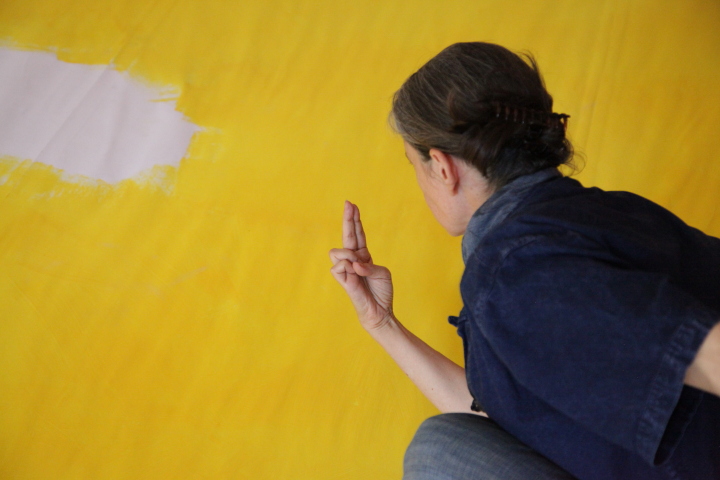
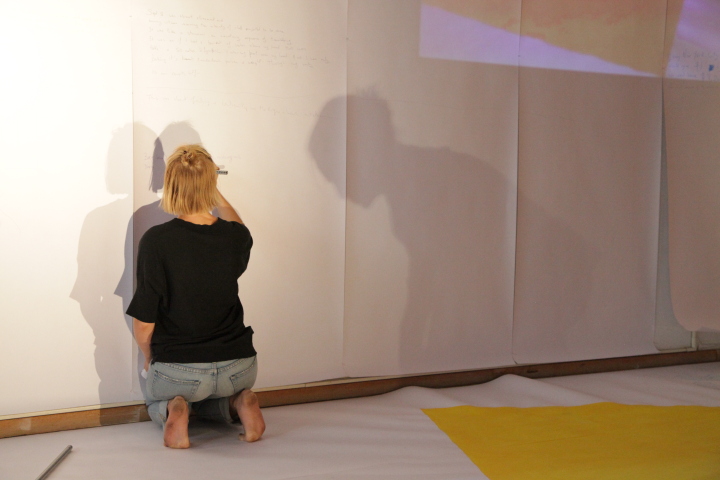
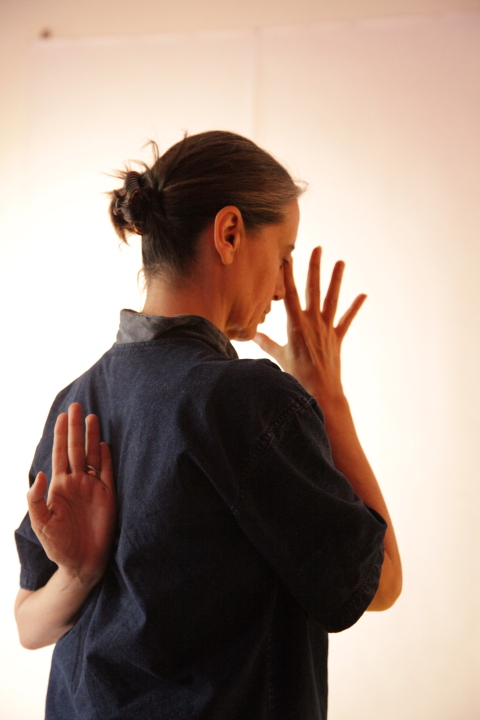
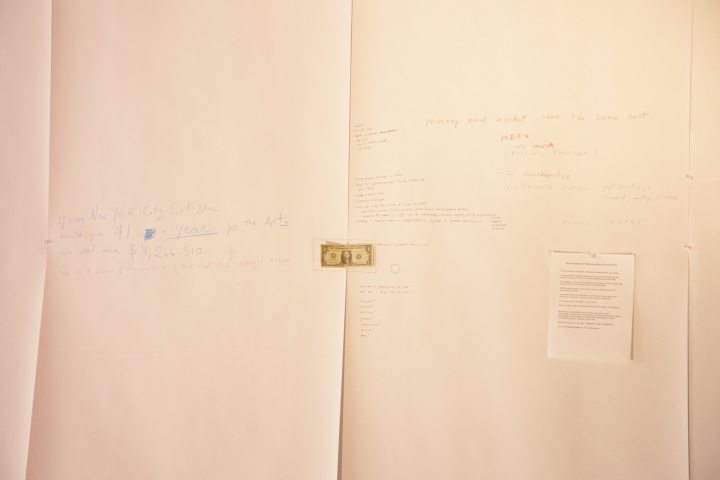
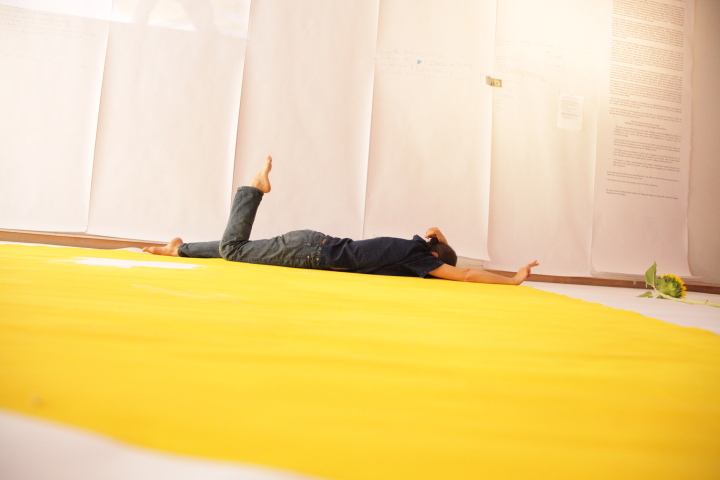
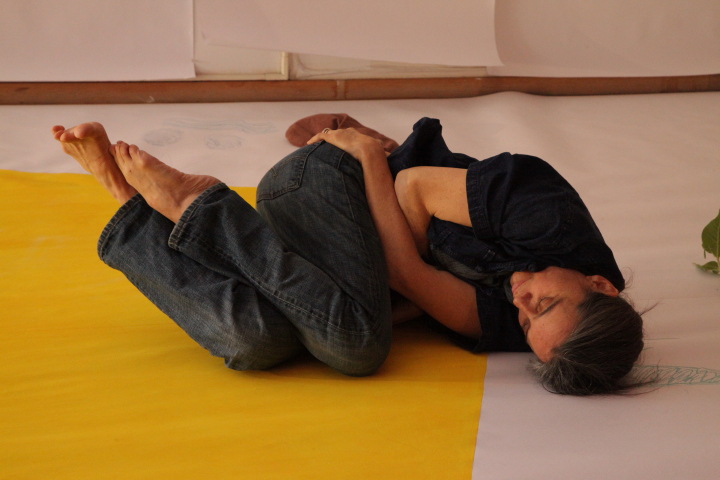
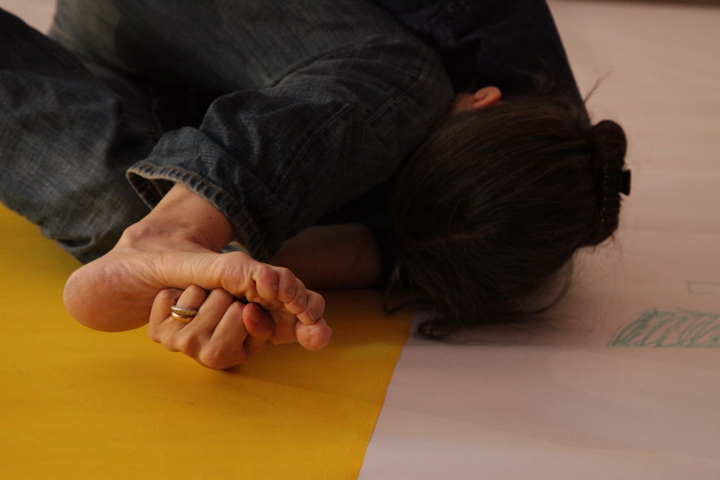
All photos (c) Aram Jibilian
I am at this crossroads—between surrendering and fighting for/with/against my personal practice and The System, in order to find a way to live the work that I carry out in a radically (i.e. subtly, comprehensively) new way. I would like to address these questions internally and in an extroverted manner as series of actions that will take shape as my thinking process evolves. The first event will be an act of detoxification of all preconceived ideas.
• I will carry out a public fast for one week, drinking water and begging for people to engage in thinking toward solutions that would integrate art as a practice that is beneficial to our society and the planet while integrating art economy with the economy at large.
• I will beg that the art world and world of art funders ask themselves how money can best be utilized to position art as a "spring point to creativity" for the whole populace, the very ground of being, and not for the benefit of few.
• I will beg so that my endeavor to find funds is integral to my creative process and so that this whole process will benefit all the people I am working with, to spare them from having to work three 'outside' jobs in order to afford working with me.
• I will beg for a better understanding of the hidden "mechanisms" behind valuation, so that they can be made more visible. I will beg so that my grasp of the mechanisms itself offers solutions.
In my internal focus (silence and detoxification) I will offer my body to these questions and to New York City and see what will come to me. I will keep a journal and invite people to join me in this meditation.
